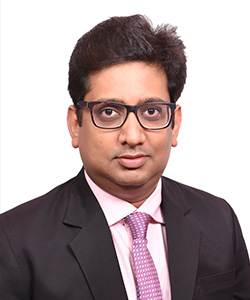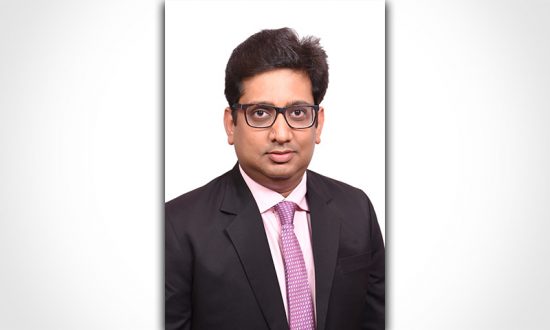Mayur Modi, Co-Founder and Co-CEO, Moneyboxx Finance, has been instrumental in developing a robust strategy, team building, driving the vision and culture at Moneyboxx Finance Pvt Ltd, which is a BSE listed NBFC. He is also actively involved in overseeing the build-up of IT stack (core lending platform), formulating credit and other policies.
Radha aged 45 is a widow and lives in Dewas, a small town, 40 km from Indore in Madhya Pradesh, with her three children, a son aged 20 and two daughters 8 and 6 years of age. Two years ago, her income from a grocery shop left behind by her husband, and meagre interest from some savings parked in bank FD were simply not enough to meet the educational needs of her growing her daughters. She needed a loan. Moneyboxx stepped in with a loan of Rs. 50,000. Radha used that to expand her grocery shop and started selling cosmetic items as well. In the next 12 months, she saved enough and along with her FDs, she was able to invest in a second hand Maruti Van for her son to become a self-employed entrepreneur, operating as a school van. Radha has since repaid her original loan and taken a repeat loan of INR 1 lac to expand her shop even more.
Radha is just one of the 3000 plus customers of Moneyboxx (www.moneyboxxfinance.com) who remain unseen by India’s large banking network. Hari Shankar Sharma is another such customer. He’s 30 years of age and lives 200 km away from Delhi, with his wife and parents in a small town called Bharatpur, Rajasthan. He runs a small rented Kirana shop (~100 sq. ft), which is just about enough to meet their monthly expenses. Hari was finding it increasingly difficult to manage his rising household expenses, and he had no access to any form of formal financing from banks and NBFCs. Moneyboxx Loan Relationship officer (LRO) reached out to him, and after due diligence, Hari was granted a loan of INR 50,000. He immediately used this money to expand his shop and buy more stock, which in the course of the last 18 months has helped him double his monthly income. Not only has Hari ever missed an EMIs, but he’s also realised the combined power of right finance and his business acumen. Like Radha, he came back for a repeat loan of INR 1 lac from Moneyboxx, which he has used to rent (~200 sq. ft) and operate a small oil mill (mustard oil expeller) next to his existing Kirana store.
These tiny businesses often run by individuals as small units, the next-door Kirana shop, livestock owner, roadside eateries, small trading shops might be the backbone and largest cohort of India’s informal economy, but they continue to remain largely neglected by the country’s mainstream banking and financing system. 73 years of independence and many of these businesses are still forced into the clutches of the sahukar, the ubiquitous, ravenous moneylender. Travel down to a small town India and even today, you will find ample examples of people in debt traps and a replay of 1960s and 70s movie scene.
In the world of financial institutions, the herd mentality is so strong that everybody likes to chase the already most banked companies or retail customers. These are the low hanging customers with established bank statements and/or salary incomes. It’s easy to provide credit to them, piggy banking on the fact that somebody would have done its due diligence. Our seven decades of financing has only accentuated economic inequality and socio-economic imbalances with too much credit flowing to certain strata of the society, while the really deserving, credit hungry and very important segments of the economy are left neglected and underserved.
These very micro-businesses, which are repeatedly ignored, neglected and dismissed as non-important by big financial institutions, are our bread and butter. And while bank credit growth shows no improvement despite a heavy push from the government and RBI, we are happy to share, our business is coming back surely and steadily.
Let me size the opportunity we decided to seize. There are close to 56 million MSME units in India, including all the big and small units put together. If you carve out the second M or the micro-businesses, there are approximately 48 million unregistered MSME units. Bear in mind though, these 48 million still miss the crores of livestock traders and other small businesses who are not on the radar of any form of formal registration, regulation or supervision. Various studies have tried to piece together this segment and shown that the total credit demand for micro-businesses is a huge ~INR 13 trillion, growing at a 20% CAGR. A majority of 85% of this continues to be met through informal sources (the moneylender).
Why is this huge opportunity neglected by financial institutions? The facts are not a surprise for anyone. These units are spread across the length and breadth of the country, and more than 70% are located in tier 2 and tier 3 towns, ~200 km away from any big city. Nobody is really interested in visiting them, understanding their requirement and doing the paperwork to extend loans as small as INR 1-2 lacs. Most of these livelihood businesses are unregistered units, with lack of documentation & personal credit history making it difficult to analyse their true cash flows, and therefore a no-go territory for most financial institutions (especially Banks). They simply do not have the necessary basic documents to require for credit decision making by institutions. Some might argue why not use the magic fintech solutions to reach these micros businesses and provide them with necessary credit. We’ve found that most of these individuals easily get hooked to smartphones for Facebook and YouTube, but they are not financially literate to use technology for availing credit.
At Moneyboxx we’ve made inroads into the micro-business segment by doing a few things which difficult but not impossible. We have gone city by city, town by town and set up our phygital network. Our army of loan officers establishes contact with these businesses. They assess the financing need and then provide individual micro-enterprises with tailor-made and simple financing solutions. We combine the physical presence of our branches with the latest technology to reach and understand the needs of our customers, collect and analyse data to arrive at a credit decision. Robust asset quality of Moneyboxx’s portfolio amidst the pandemic with a high collection efficiency of ~94% during the moratorium and zero NPAs to date, validate the merits of the customer-centric phygital model over a pure-play fintech approach.
We believe that the branch model combined with the prowess of technology is a sustainable business model which also creates more employment opportunities for locals, resulting in a win-win situation for all. In our very first year, we have set up operations in 11 cities across 4 states and provided growth capital to more than 3,000 customers and positively impacted 15,000 lives. This is a humble start from our end in the l financial inclusion drive in India. We have lined up plans to spread our presence across the length and breadth of India.
Today 52% of our loan portfolio is made up of livestock small owners. These are people in Tier 2 and Tier 3 towns who own 3-8 Cattle and sometimes have small farming business as well. They borrow money from us to purchase cattle. Unlike agriculture, livestock provides a very stable source of earning which is also the reason that despite lock-down and moratorium our collection during past 5 months has been 94% and as high as 98.4% in July. A person owning 3 cattle can double his income in 2-3 years by taking loans from us. Traders make up the second-largest group with 27% of Moneyboxx Finance’s portfolio – These are typical shops like garments, hardware, fancy item stores and so on. The margin is this segment is typically higher at 25-30% as these involve a lot of locally sourced products as compared to branded products. The average daily sale of these segment ranges from INR 7,500 to 10,000 and after taking care of all expenses (rental, salaries and other expenses) they earn anything between 1,500 to 2,000 per day. These set of customers are more financially sound as compared to Livestock and Kirana and are able to borrow much higher amount (typical loan is above 1 lac and can go up to 3 lac). Small manufacturers making ancillary products for large manufactures in auto, garments, shoe industry etc. are the other group we lend to. The margin for such a set of customers ranges between 25-35% depending on the nature of the work and segment that they are into. These customers generally have small manufacturing units in tier 2 and tier 3 cities ranging between 500 sq. ft to 1000 sq. ft in size, which is generally rented. They borrow mainly for the working capital requirement. Their loan requirement is typically higher ranging from 1.5 lac and upwards, and they also have better repayment capability if they are in business for more than 3 years and above.
And Kirana shop owners like Radha and Hari make up 8% of our portfolio. And this segment beat all the pandemic blues, earning almost earning 2x their regular income. This was our best performing segment with least cheque bounces and requests for moratorium within our portfolio.
After a loan and repayment journey with us, these previously unbanked individual businesses and entrepreneurs learn how to tap into affordable credit by doing some basic re-modelling of their businesses, such as transacting more through banking channels, registering their units, creating a credit history and so on. For us, a job is well done, not only because these units flourish after credit from us, but they are now ready to access the formal credit system leading to a strong multiplier effect and wonderful transformation in local communities.
More About Mayur Modi

A Chartered Accountant with more than 18+ years of experience in financial service industry across developed and emerging markets, Mr Mayur started his career with GE Capital and went on to work in large financial institutions like JP Morgan and HSBC wherein he was instrumental in developing key relationships across Financial Institutions. He also has considerable expertise in the areas of banking and capital products, credit ratings of financial institutions, industry research, relationship management and risk management, among others.


